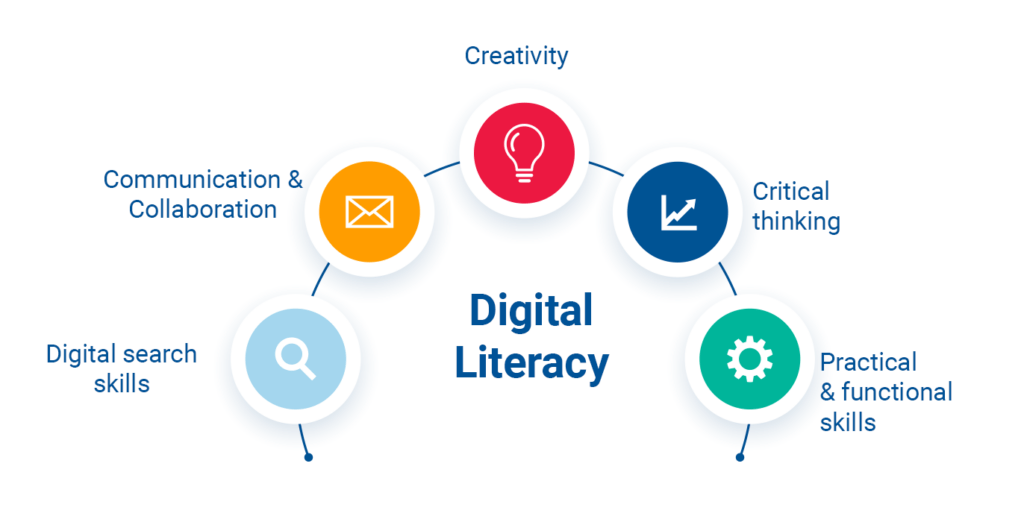╭────────────────────────────────»»❀❀❀««────────────────────────────────╮

To address digital literacy in the classroom, it is crucial that information is frequently updated to maintain relevancy to our learners – and the times. For example, although the infamous Pacific Northwest Tree Octopus was once a top-tier resource, it is no longer fit to address the very real risks that youth are facing within their digital universes. Take privacy concerns, trolling, misinformation, disinformation, deepfakes, and/or digital addiction as examples.
Given the understanding that youth are typically “more digitally sophisticated than teachers,” it is important that we not only engage in two-way learning processes with our students, but also implement any suggestions, changes, or updates into our classroom content. For example, in a Grade 3 classroom, I can begin a lesson – or unit – by asking my learners about what they know, or would like to know, about digital literacy. From there, I can adapt my initial plans based on their responses.
On the topic of youth input, Yimin Yand is a 13-year-old student from Vancouver. Below, he teaches his very own lesson about digital literacy.
Focusing on a Grade 3 level, digital literacy be incorporated into the classroom through a variety of ways:
1.) Social Studies
- RW3.3 Evaluate the ways in which technologies have impacted daily life.
- Learners can research the influence of a relevant digital literacy topic and present their findings digitally to the class – PowerPoint, Google Slides, Prezi, et cetera.
- NCTE Connection: Consume, curate, and create actively across contexts.
2.) Physical Education
- PE3.10 Demonstrate, verbally and non-verbally, consideration and respect for all others (regardless of ideas, abilities, worldviews, physical characteristics, cultural backgrounds, or gender) while participating in physical education activities.
- Students can leave kind comments for one another on an online platform, such as Flipgrid, practicing the understanding of being kind online.
- NCTE Connection: Participate effectively and critically in a networked world.
3.) Mathematics
- SP3.1 Demonstrate understanding of first-hand data using tally marks, charts, lists, bar graphs, and line plots.
- Ask students to conduct digital-related studies amongst classmates and record their findings. For example, how many hours do you spend using technology in a day? References such as the Interactive Media Bias Chart can be provided as a visual aid.
- NCTE Connection: Explore and engage critically, thoughtfully, and across a wide variety of inclusive texts and tools/modalities.
4.) Health
- USC3.5 Evaluate safe behaviours/practices to increase the safety of self and others while at home.
- Learners can practice creating their own cyber-safe passwords. From there, they can learn why it is important to keep their own and their families’ passwords safe. As well, students can learn the importance of keeping personal information – such as home addresses – private online.
- NCTE Connection: Participate effectively and critically in a networked world.
5.) English
- CR4.2 View and respond to visual and multimedia texts (including graphs, charts, diagrams, maps, multimedia DVD, websites, television programs, advertisements, posters), explaining the creator’s technique and the impact on viewers.
- Introduce the concept of fake news by going through online quizzes such as Spot the Fake or Break the Fake as a class. Then, have students respond to the questions of how to spot fake news and/or why individuals create fake news on paper.
- NCTE Connection: Explore and engage critically, thoughtfully, and across a wide variety of inclusive texts and tools/modalities.
Thank you so much for reading! Before you go, I just have one quick question. Are there any digital literacy – or cyber-related – lessons you remember from your own schooling experience? If so, what made the lesson so memorable? 💭
╰────────────────────────────────»»❀❀❀««────────────────────────────────╯